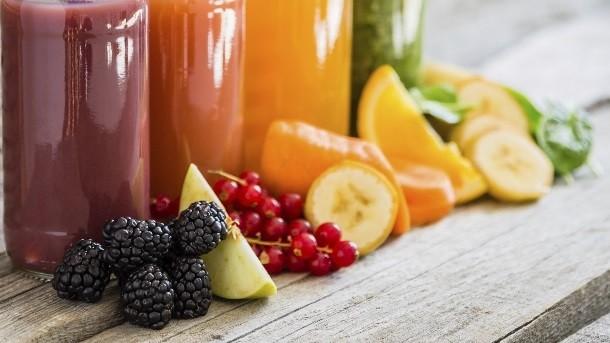The beverage flavors market has experienced significant developments in recent years, shaped by changing consumer preferences, technological innovations, and sustainability initiatives. Staying informed about these trends allows companies to anticipate market shifts, refine strategies, and launch competitive products. Recent developments include new flavor innovations, functional beverages, regional flavor diversification, and digital marketing strategies, all contributing to an evolving landscape. Understanding these changes is critical for businesses seeking to maintain relevance and growth in the global market.
Emergence of Functional and Health-Focused Flavors
One of the most notable recent developments in the beverage flavors market is the increased focus on functional and health-oriented flavors. Consumers are seeking beverages that provide added benefits such as immunity support, digestive health, energy boosting, or relaxation. Companies are responding by creating formulations infused with vitamins, antioxidants, probiotics, adaptogens, and herbal extracts. This trend not only meets consumer health expectations but also differentiates products in a highly competitive market. Functional flavors are now a key driver of product innovation and consumer engagement.
Natural and Clean-Label Flavor Trends
Clean-label and natural flavor development is a major recent trend. Consumers are increasingly avoiding artificial ingredients, favoring natural extracts and plant-based alternatives. This has led to innovations in sourcing and processing methods that preserve flavor quality while adhering to clean-label standards. Natural flavors enhance product appeal and meet regulatory requirements while appealing to health-conscious and environmentally aware consumers. Companies adopting these trends are able to strengthen brand credibility and loyalty in an evolving market.
Technological Advancements Enhancing Flavor Creation
Recent technological developments have transformed flavor formulation and product development. Techniques such as flavor encapsulation, molecular blending, and AI-driven predictive analysis enable precise flavor creation, longer shelf life, and improved consistency. Companies leveraging these technologies can rapidly develop new products aligned with emerging consumer trends. Advanced technology also facilitates customization and personalization, allowing businesses to target specific consumer groups with unique flavor experiences, further enhancing market competitiveness.
Regional Flavor Diversification
A significant recent development in the market is the regional diversification of flavors. Companies are exploring local and culturally inspired flavors to cater to regional preferences. For example, tropical and exotic fruit flavors are popular in Asia-Pacific, while botanical infusions and functional blends are gaining traction in North America and Europe. Understanding and incorporating regional flavor preferences enables companies to create targeted products that resonate with local consumers, expand market reach, and enhance adoption rates in diverse markets.
Sustainability and Eco-Friendly Developments
Sustainability initiatives are increasingly influencing recent developments in the beverage flavors market. Companies are adopting environmentally friendly production practices, sourcing responsibly, and using biodegradable or recyclable packaging. Consumers are favoring brands that demonstrate commitment to sustainability, making eco-conscious practices a competitive advantage. Recent developments in sustainable flavor sourcing and production are helping companies meet regulatory requirements and appeal to environmentally aware consumers while reducing operational impact.
Collaborations and Strategic Partnerships
Collaborations between beverage manufacturers, flavor houses, and technology providers are shaping the market’s recent developments. These partnerships accelerate innovation, enhance R&D capabilities, and enable faster product launches. Co-branded or collaborative products offer unique flavor profiles that attract consumer attention and create excitement in the marketplace. Strategic alliances help companies leverage combined expertise and resources, fostering innovation and ensuring that products meet evolving consumer demands.
Digital Marketing and Consumer Engagement
Recent developments also include advancements in marketing and consumer engagement strategies. Brands are using social media, influencer partnerships, and interactive campaigns to promote new flavors and connect with consumers. Transparent labeling, storytelling, and highlighting functional or sustainable benefits strengthen trust and loyalty. Digital strategies have become a vital tool for companies to differentiate products, capture consumer interest, and respond quickly to emerging trends in the beverage flavors market.
Challenges Amid Recent Developments
While these developments offer growth opportunities, challenges persist. Rising raw material costs, regulatory complexity, and fluctuating consumer expectations require agile strategies. Companies must balance innovation with cost efficiency, sustainability, and market responsiveness. Those that fail to adapt risk losing market share to more proactive and innovative competitors. Successfully addressing these challenges is crucial for capitalizing on recent developments and achieving long-term growth.
Future Outlook Based on Recent Developments
The future of the beverage flavors market is influenced by recent developments in functional flavors, sustainability, technology, and regional adaptation. Companies that continue to innovate, integrate eco-friendly practices, and tailor products to regional preferences are well-positioned for long-term success. Monitoring these developments allows businesses to anticipate trends, optimize product offerings, and maintain a competitive edge in the dynamic global market.
Conclusion
Beverage flavors market recent developments demonstrate a strong focus on health, innovation, sustainability, regional diversity, and consumer engagement. Companies that align their strategies with these trends can differentiate themselves, capture growth opportunities, and maintain competitiveness. Staying responsive to evolving preferences, embracing technological advancements, and prioritizing eco-conscious practices are essential to thriving in the global beverage flavors industry. By leveraging these developments, companies can achieve sustainable growth, enhance brand loyalty, and solidify their position in the evolving market landscape.

